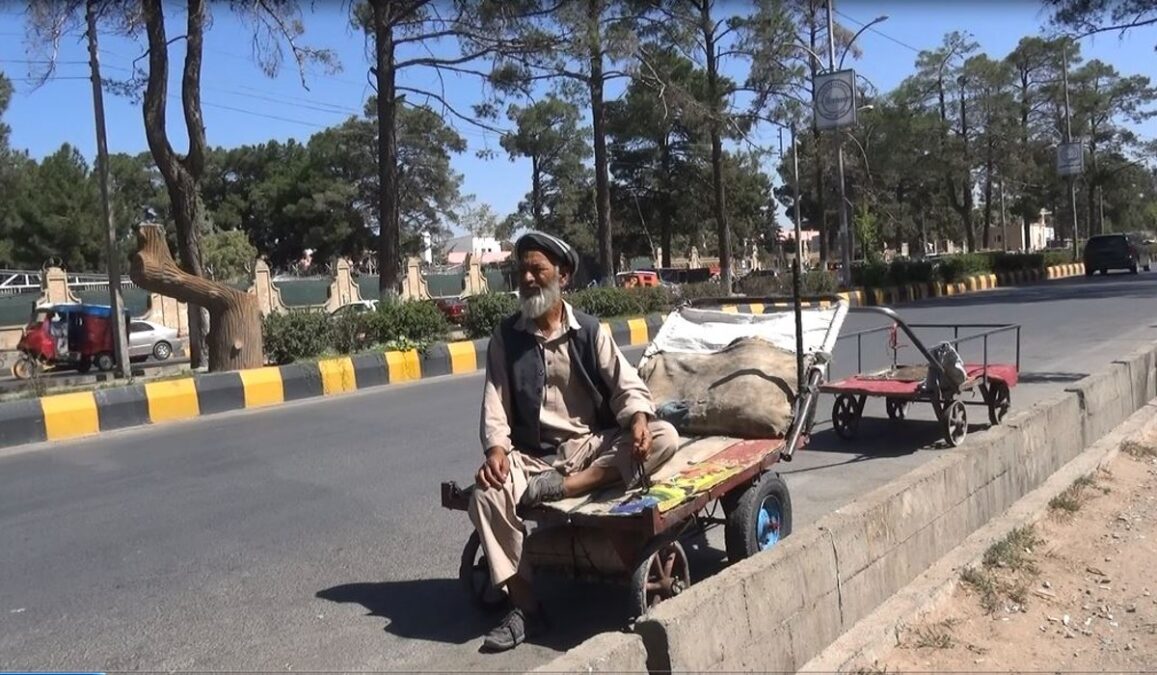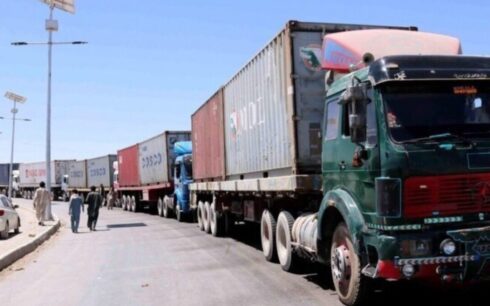The World Bank in its latest report gave Afghanistan’s economic situation a positive review, stating export volumes were high, the Afghani currency was stable and revenue collections were strong under the Taliban rule.
However, a number of economic and political experts have debunked this, stating the report contradicts the reality of the situation in Afghanistan.
Siyar Qureshi, one economist, said the World Bank’s report is in conflict with reports of the United Nations and non-governmental organizations (NGOs), that warn of a deteriorating humanitarian crisis in Afghanistan.
Qureshi said the report did not take into consideration a number of key factors including the high level of unemployment, and the purchasing power index rating.
Qureshi stated that the stability of the Afghan currency depends on the UN’s weekly cash aid shipments and that the “Afghan currency preserved its value due to the injection of dollars into the market. The central bank [of Afghanistan] injects US dollars into markets each week so that the value of the Afghani is preserved.”
The World Bank also reported that inflation dropped by half from 18 percent in Afghanistan. However, people raised their voices over the hefty taxes imposed by the Taliban.
Ahmad Saeedi, a political affairs expert, said the report was “irrational” and that despite a huge amount of cash assistance shipped to Kabul by the international community “it had no effect on the situation of the people in Afghanistan and did not help in eradicating poverty.”
According to the World Bank, civil servants’ salaries were paid on time for both men and women, and demand for both skilled and unskilled labor has been declining since the beginning of this winter.
Saeedi said that a large number of people have lost their jobs and the salaries of current employees and pensions for retired employees have not been paid under Taliban rule.
“The Taliban have dealt cruelly in the tax collection department. There is no electricity at all, but bills reach up to 10,000 Afghanis (around $100). So it is clear that the report of the World Bank is irrational and I have no trust in this report,” he added.
Political expert Aziz Maarij, meanwhile, stated that the World Bank has ignored the humanitarian crisis in the country and said: “By publishing this report, the World Bank sends a message to the world that Afghanistan is in a good economic situation so that the world will cut off its aid to this country; While this is not the case and the people of Afghanistan are in a miserable situation.”
Investments significantly decreased in private sector
According to reports, investments in the private sector of Afghanistan have significantly decreased after the return of the Taliban to power in August 2021.
One of the officials of the Afghanistan Chamber of Commerce and Industry, who wished to remain anonymous, said: “No businessman feels safe; Because the tax is very backbreaking. Businessmen are looking for profit, but excessive taxation discourages businessmen from working and investing [in Afghanistan].”
“There are no principles and frameworks for trade. Investors are afraid of wasting their assets. They have transferred their money out of the country and this has directly affected the country’s economic situation,” he added.
Manufacturers face many challenges
Abdul Karim Azim, executive director of the Chamber of Industry and Mines, said that efforts have been put in place to eliminate corruption from administrations.
Azim added that Afghan manufacturers are facing many challenges and that the shortage of electricity is the major problem.
“There is no doubt that poverty has increased in Afghanistan. This has many reasons. The main factor is the weakening of the private sector. Factories do not have stable electricity, so they had to lay off their employees. On the other hand, the suspension of the activities of international organizations in Afghanistan has also had an adverse effect on the economic structure of the country,” he said.
This comes after the United Nations Office for the Coordination of Humanitarian Affairs (UNOCHA) last week reported that the humanitarian situation in Afghanistan is deteriorating.
According to the report, 97 percent of the population is in dire need of humanitarian assistance, and 20 million in the country are struggling with acute hunger.





